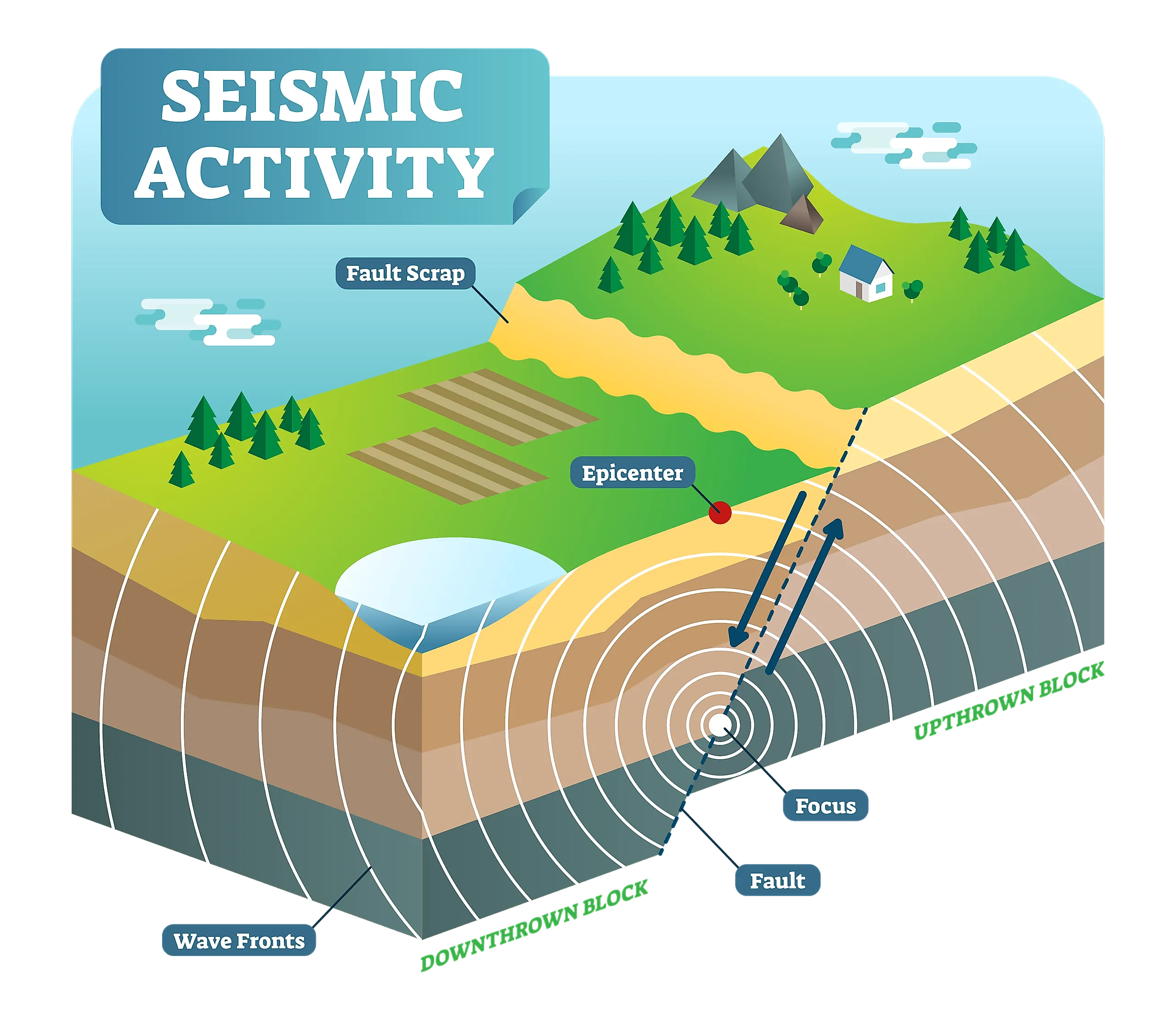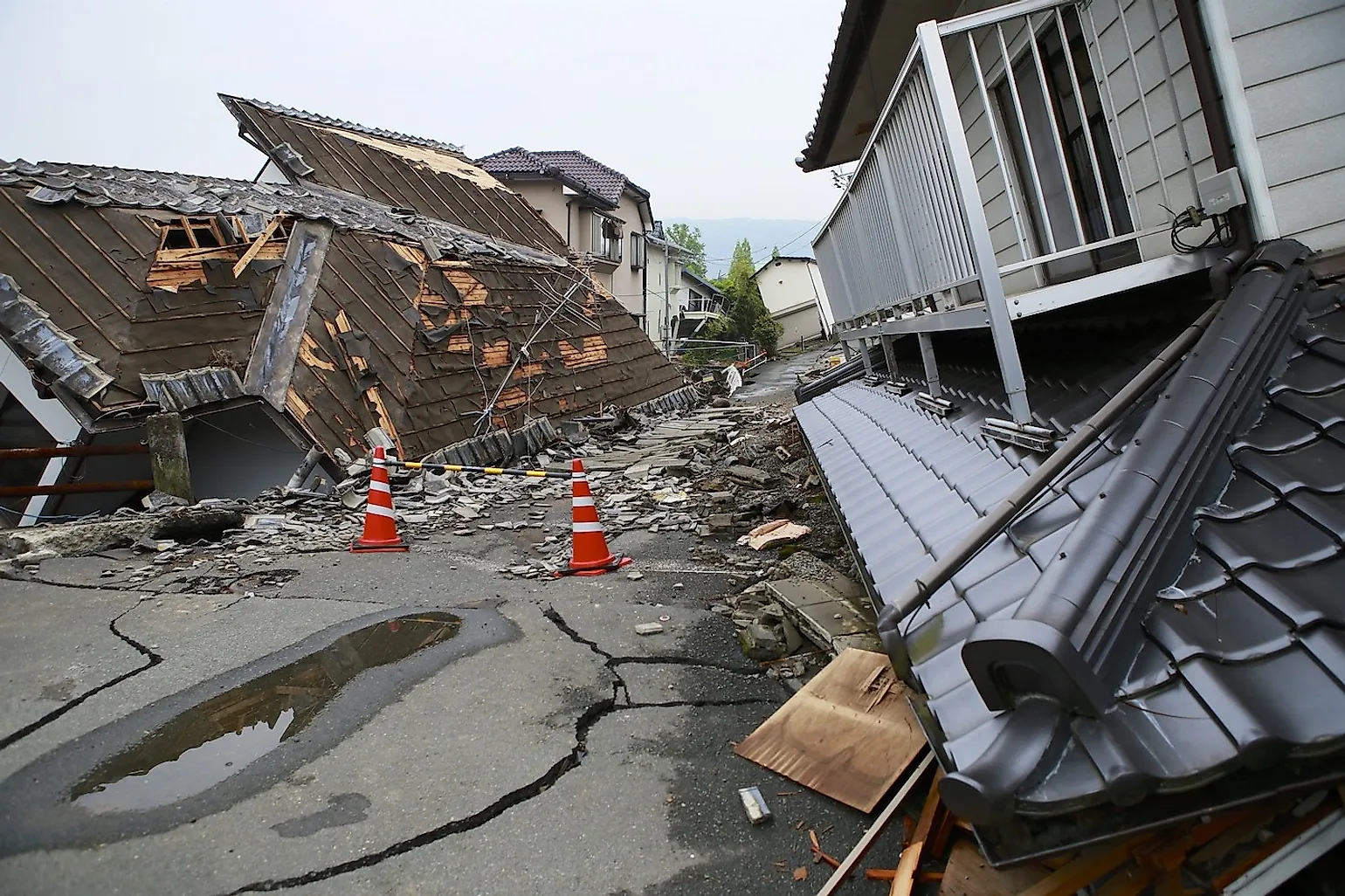What Can Cause Earthquake
Earthquakes are a natural phenomenon that has continued to marvel scientists and citizens alike. They are known to cause destruction and take lives, and understanding what causes them is imperative in preventing and managing their effects. The earth is not static, and there are many factors that can cause earthquakes. Some of these factors include natural and human activities. In this article, we will explore some of the activities that lead to earthquakes and their effects.
Natural Causes of Earthquakes
The earth is a dynamic planet with moving plates that create tension and release energy in the form of earthquakes. The movements in the earth's crust result in the buildup of energy that accumulates until it is sufficient to cause a seismic event. The energy that is released during an earthquake travels in waves, and the intensity of the waves can cause varying degrees of damage on the surface.
There are several natural causes of earthquakes, including:
Plate Tectonics

Plate tectonics is one of the leading causes of earthquakes. It refers to the movement of the earth's plates, which results in the formation of fault lines. When two plates move against each other, they rub and create tension on the fault line. This tension eventually reaches a point that affects the strength of the rock, causing it to break. This movement of the rocks along the fault line releases energy that manifests as an earthquake.
Volcanic Eruptions

Volcanic eruptions occur when magma rises from the earth's mantle to the surface. The buildup of pressure and the release of gases cause an explosion that can trigger an earthquake. The movement of the magma can also cause seismic waves that lead to tremors and earthquakes.
Human Activities that Cause Earthquakes
Human activities can also cause earthquakes, and the recent increase in infrastructure development, mining, and oil drilling has led to an increase in human-induced seismic events. Human activities can cause earthquakes by:
Fracking
Fracking is a process used to extract gas and oil from the earth's crust. The process involves injecting water, sand, and chemicals into the rock formations to create fractures that release gas and oil. The injection of these substances into the rock formations can cause pressure changes that trigger seismic events.
Underground Mining
Mining activities involve the excavation of minerals from underground. The extraction process can cause the ground to shift, especially if the mining is done in regions with weak geological structures. The shifting of the ground can cause tension on the fault line, leading to an earthquake.
Dams
Dams are structures built to regulate water flow or generate electricity. The construction of a dam can change the balance of the earth's crust, leading to instability and tension. The weight of the water in the dam can also cause the ground to shift, leading to tremors and earthquakes.
Conclusion
Earthquakes are a natural phenomenon that can cause destruction. Understanding the causes of earthquakes is crucial in managing their effects. Natural causes of earthquakes include plate tectonics and volcanic eruptions, while human activities that cause earthquakes include fracking, underground mining, and dam construction. As we continue to develop infrastructure and explore natural resources, it is essential to consider the potential impacts on the earth's crust.